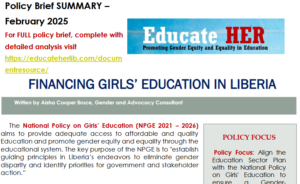Africa Trade Finance: Unlocking Potential in Frontier Economies
Africa Trade Finance plays a crucial role in bridging the funding gap that has long held back frontier economies. With GHIB and BII’s $50 million partnership, the flow of trade finance will accelerate, providing businesses with the capital needed to import essential goods and equipment. This injection not only supports the operational continuity of companies but also fuels economic activities in underbanked regions such as Sierra Leone, Liberia, and The Gambia. The partnership recognizes the high-risk perception associated with these markets but leverages GHIB’s expertise in risk management to navigate these challenges effectively. With improved access to trade finance, local entrepreneurs can scale their operations, creating employment and contributing to GDP growth.
Trade Finance as a Catalyst for Economic Inclusion
Trade finance extends beyond facilitating imports and exports; it is a catalyst for economic inclusion, especially in underserved African economies. The financial barrier that previously limited small and medium enterprises’ ability to participate in international trade is being dismantled by strategic partnerships like that of GHIB and BII. By easing credit availability, these institutions empower businesses to meet market demands competitively. This empowerment ensures that communities receive essential goods at reasonable prices, while business owners gain sustainable revenue streams. As these economies integrate more robust trade financing solutions, they become more resilient against global economic shocks and foster a more diversified and inclusive market landscape.
GHIB’s Deep Understanding of African Market Risks
One of GHIB’s greatest strengths lies in its 65-year legacy of understanding and managing African market risks. This deep-rooted knowledge enables GHIB to tailor financing solutions to the unique conditions of frontier economies. Partnering with BII, which brings significant foreign exchange liquidity, GHIB can structure trade finance deals that balance risk and profitability. Such collaborations open avenues for liquidity injection into markets that traditionally face capital scarcity, thereby unlocking approximately $1.3 in GDP for every dollar invested in trade. GHIB’s commitment ensures that these frontier economies do not remain isolated but become active players in the global trade system, fostering sustainable economic growth and improved livelihoods.
Bridging the Trade Finance Gap for Frontier Markets
The trade finance gap in Africa’s frontier markets has long been a bottleneck for economic progress. GHIB and BII’s partnership is strategically designed to bridge this divide by addressing the key challenges of risk perception and low transaction volumes. By increasing the availability of credit, the facility encourages businesses to expand their import-export activities, improving supply chains and boosting the availability of essential goods. This targeted intervention is critical in countries such as Benin, Rwanda, and the Democratic Republic of Congo, where trade finance solutions have historically been limited, leaving businesses constrained and consumers underserved.
Africa Trade Finance: Enabling Sustainable Growth through Strategic Investment
Sustainability is at the heart of GHIB and BII’s investment strategy. The trade finance facility is not merely a short-term injection of capital but a long-term commitment to fostering growth that is inclusive and sustainable. By supporting businesses in critical sectors and facilitating access to essential goods, the partnership promotes economic stability and job creation.
Moreover, it contributes to reducing poverty and enhancing the quality of life for many Africans. This strategic investment approach aligns with broader developmental goals, ensuring that economic gains translate into tangible social benefits.
Africa Trade Finance: Enhancing UK-Africa Economic Ties
This $50 million trade finance facility exemplifies the strengthening of economic ties between the UK and Africa. It enables African businesses to expand trade with global markets, including the UK, thus opening new avenues for cooperation and growth. UK Minister for Africa, Lord Collins of Highbury, emphasized the importance of such partnerships in bridging Africa’s trade financing gap, underscoring the role of British International Investment in catalyzing economic opportunities. These collaborations foster mutual benefits, contributing to global economic integration and reinforcing the UK’s commitment to supporting Africa’s development.
Africa Trade Finance: Driving Inclusive Economic Growth in Frontier Markets
Inclusive growth remains a key objective for the GHIB-BII partnership. By improving access to trade finance, the facility empowers a broader base of businesses, including small and medium-sized enterprises, to participate actively in economic activities. This inclusivity drives job creation, increases household incomes, and stimulates demand across various sectors. The strategic focus on frontier economies, which are often overlooked due to perceived risks, signals a shift toward recognizing and harnessing their growth potential. This approach promotes balanced regional development and helps reduce economic disparities within Africa.
Africa Trade Finance: Impact of GHIB and BII Partnership on Local Businesses
The $50 million trade finance facility between GHIB and BII is set to profoundly impact local businesses across several African frontier economies. Many of these businesses have faced persistent challenges in accessing affordable credit, hindering their capacity to expand and compete in regional and global markets. This partnership will provide much-needed liquidity, enabling these enterprises to import raw materials, invest in new technologies, and scale their operations. The increased access to finance fosters an environment where innovation can thrive, and business resilience is enhanced, ultimately contributing to stronger local economies and more diverse job opportunities.
Africa Trade Finance: Addressing the Unique Challenges of Frontier Markets
Frontier markets in Africa come with unique risks, including political instability, fluctuating currencies, and limited financial infrastructure. GHIB’s extensive experience navigating these complexities, combined with BII’s robust financial backing, creates a powerful synergy capable of mitigating these risks effectively. This partnership’s approach includes customized risk assessments and flexible repayment terms designed to align with the realities of frontier market cash flows. Such tailored solutions increase the likelihood of successful financing outcomes and demonstrate a commitment to sustainable financial inclusion in these underserved regions.
Promoting Regional Integration Through Trade Finance
By facilitating cross-border trade finance, GHIB and BII contribute to deeper regional integration within Africa’s frontier economies. Enhanced trade flows encourage stronger economic linkages between neighboring countries, improving supply chains and reducing transaction costs. This integration supports the African Continental Free Trade Area (AfCFTA) objectives by creating a more unified market with fewer barriers. The facility empowers businesses to capitalize on new market opportunities beyond their borders, boosting competitiveness and fostering a spirit of collaboration that benefits the entire region’s economic landscape.
Africa Trade Finance: Expanding Economic Opportunities through GHIB and BII Trade Finance
Trade finance is a critical lever for economic development, particularly in frontier markets where traditional credit channels are often limited or prohibitively expensive. The partnership between GHIB and BII directly addresses this gap by providing $50 million to stimulate trade activities in countries like Sierra Leone, Liberia, and Rwanda. By enabling businesses to access necessary capital for importing essential goods and equipment, this facility enhances operational capacity and market competitiveness. More importantly, it catalyzes economic activities that create jobs and foster sustainable livelihoods for local communities, thereby promoting broader social and economic stability across the region.
Africa Trade Finance: Building Resilience in Africa’s Frontier Markets
Africa’s frontier markets are often susceptible to external shocks such as commodity price fluctuations, currency volatility, and geopolitical tensions. These vulnerabilities can hamper trade and financial flows, exacerbating economic fragility. The GHIB-BII trade finance facility acts as a buffer against such risks by injecting liquidity and providing tailored financial solutions that consider local market dynamics. This approach helps businesses maintain continuity and adapt to changing conditions, which is crucial for long-term resilience. The partnership thus plays a pivotal role in stabilizing these economies, ensuring that critical supply chains remain functional and that consumers have access to affordable goods.
Africa Trade Finance: Innovative Financial Solutions Driving Inclusion
Beyond funding, GHIB and BII’s collaboration introduces innovative financial products tailored to the needs of frontier markets. These include flexible repayment schedules, risk-sharing mechanisms, and digital payment platforms that improve transaction efficiency. Such innovations lower barriers for small and medium-sized enterprises (SMEs) to participate in cross-border trade, a sector traditionally dominated by larger corporations. By empowering SMEs, the facility supports inclusive economic growth and helps bridge the financing divide. This inclusive approach aligns with broader development goals focused on reducing poverty and promoting equitable economic participation.
Africa Trade Finance: Strengthening Partnerships for Sustainable Growth
The GHIB and BII partnership exemplifies how strategic alliances can unlock financing solutions in challenging markets. Leveraging GHIB’s deep understanding of African markets with BII’s financial muscle creates a synergy that benefits a wide range of stakeholders, from local businesses to governments and international investors. This model fosters trust and collaboration across sectors, encouraging additional investments and enabling the implementation of sustainable projects. The resulting growth contributes not only to economic expansion but also to social development objectives such as gender equality, environmental sustainability, and poverty alleviation.
Future Prospects for Trade Finance in Africa’s Emerging Markets
The GHIB and BII collaboration marks a significant milestone in the evolution of trade finance in Africa’s emerging markets. As more businesses gain access to the financial tools necessary to operate efficiently, the broader ecosystem becomes more attractive to investors. This positive feedback loop can accelerate economic transformation, drawing in further capital and expertise. Looking ahead, the success of this facility may encourage additional partnerships and funding vehicles, enhancing financial inclusion and economic resilience across the continent. It sets a precedent for innovative financing models that address the distinct needs of frontier economies while driving sustainable development.
Source: Business Africa Online
For more details on similar initiatives, check our latest article on Africa Trade Finance Boost.




